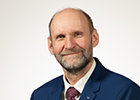Automaks
Istung: XV Riigikogu, III istungjärk, infotund
Kuupäev: 2024-02-07 14:29
Osalevad Poliitikud:
Sõnavõtte kokku: 41
Koosseis: 15
Päevakorra kestus: 59m
AI kokkuvõtted: 41/41 Sõnavõtud (100.0%)
Analysis: Structured Analysis
Poliitikute Kõneaeg
Poliitikud
Analüüs
Kokkuvõte
Antud Riigikogu infotunni arutelu keskendus teravalt valitsuse plaanitavale automaksule ja Eesti majanduse hetkeolukorrale. Peaminister Kaja Kallas vastas opositsioonipoliitikute Urmas Reinsalu ja Martin Helme küsimustele, kes nõudsid automaksuseaduse eelnõu tagasivõtmist, väites, et see süvendab majanduslangust, mis on Eestis Euroopa sügavaim. Reinsalu tõi esile kõrge inflatsiooni, madala majandususaldusindeksi ja tööstustoodangu languse, kritiseerides valitsuse jätkuvat maksutõusude poliitikat.
Peaminister Kallas kaitses valitsuse otsuseid, rõhutades, et maksutõusud, sealhulgas automaks, on vältimatud, et katta oluliselt kasvanud riigikaitsekulutused (3% SKT-st) keerulises julgeolekuolukorras. Ta vaidles vastu opositsiooni majandusnäitajate tõlgendusele, viidates positiivsetele trendidele, nagu palgakasv, pensionitõus ja elektrihinna langus võrreldes varasema aastaga. Samuti tõi Kallas esile, et automaksu on soovitanud OECD ning see aitab lahendada riigieelarve probleeme, mis on tingitud varasemate valitsuste reservide kulutamisest. Arutelu käigus tekkis ka protseduurilisi küsimusi peaministri esitatud faktiväidete õigsuse kohta.
Tehtud otsused 1
Infotunni raames seadusandlikke otsuseid vastu ei võetud. Kultuuriminister Heidy Purga andis aga teada, et Rahandusministeeriumiga on saavutatud kokkulepe, mille kohaselt museaalina arvel olevad sõidukid vabastatakse automaksust. See maksuvabastus luuakse Kultuuriministeeriumi poolt eraldi meetmena, mitte otseselt automaksuseaduses.
Aktiivseimkõneleja
Kõige aktiivsem poliitik, kellel oli esitatud isikukood, oli Urmas Reinsalu. Ta esitas peaministrile kaks sisulist küsimust ja kaks protseduurilist märkust, olles seega debati üks peamisi eestvedajaid. Reinsalu esindas parempoolset opositsiooni (Isamaa), nõudes tungivalt automaksuseaduse eelnõu tagasivõtmist, kuna see tema hinnangul süvendab Eesti majanduslangust ja halvendab inimeste toimetulekut.
Esimees Lauri Hussar
AI kokkuvõte
Riigikogu liige Urmas Reinsalu esitab tänase kolmanda küsimuse peaminister Kaja Kallasele teemal automaks.

Urmas Reinsalu
Profiileerimine Isamaa fraktsioonAI kokkuvõte
Urmas Reinsalu ütles, et Eesti majandus on keerulises olukorras inflatsiooni tõttu, kõrgete elektrienergia hindade ja tööstuse mahu languse tõttu ning 2023. aasta näitajad on 2010. aasta tasemel, ning palus automaksuseaduse menetlusest tagasi võtta, tõstes esile, et maks oleks umbes 5–15% auto väärtusest ja selle vastu on kogutud umbes 80 000 allkirja, ning küsis, kas valitsuse poliitika vajab korrigeerimist.
Peaminister Kaja Kallas
AI kokkuvõte
Peaminister Kaja Kallas ütles, et Eesti seisab 30 aasta kõige keerulisema julgeolekuolukorra ees ning riigikaitse on märkimisväärselt suurenenud, mille katmiseks on vaja lisatulu (nagu 3% SKT-st ja käibemaksutõus), et hoida sõda siia jõudmata, ning kuigi majanduses on olnud raskusi, näitavad palgas ja pensionide kasv ning transpordisektori näitajate paranemine heaks märgiks, mis viitab tööstustoodangu taastele.
Esimees Lauri Hussar
AI kokkuvõte
Kõne on üleskutse: on teie aeg tegutseda.
Peaminister Kaja Kallas
AI kokkuvõte
Peaminister Kaja Kallas märkis, et Eesti ja Soome vahelise kaubavedo mahu näitaja on 8,7%, ning lisas, et nende positiivsete näitajate valguses on ta valmis jätkama ja vastama edaspidi esitatud küsimustele.
Esimees Lauri Hussar
AI kokkuvõte
Esimees tänas ja palus, et Urmas Reinsalu esitaks täpsustava küsimuse.

Urmas Reinsalu
Profiileerimine Isamaa fraktsioonAI kokkuvõte
Urmas Reinsalu süüdistas valitsust majandussurutise süvendamises, viitas konjunktuuriinstituudi näitajatele ja tööstus- ja ehitussektori usalduslangusele, võrdles Eesti olukorda Läti ja Leeduga ning küsis peaministrilt, kas majanduspoliitika on vale ja kas automaksuseadus võetakse tagasi, millele ta ei saanud vastust.
Peaminister Kaja Kallas
AI kokkuvõte
Peaminister Kaja Kallas rõhutab, et julgeolek on majanduspoliitika ja Eesti iseseisvuse kaitseks on riigikaitsekulutused suurendatud 400 miljoni euro võrra aastas, sest ajalooline õppetund näitab, et riigikaitse puudumine toob kaasa vabaduse kaotamise riski, ning tuleb vaadata tervikpilti energiahindade ja võimalike maksude, nagu automaksu OECD-soovituste järgi, tasakaalustamiseks.
Esimees Lauri Hussar
AI kokkuvõte
See on lühike ja otsene sõnum, mis kutsub kuulajaid tegutsema ja rõhutab, et nende aeg on käes.
Peaminister Kaja Kallas
AI kokkuvõte
Peaminister Kaja Kallas ütles, et automaks ei meeldi, kuid hetkel puuduvad tal paremad võimalused ning ta ei ole kuulnud ka alternatiivseid ettepanekuid.
Esimees Lauri Hussar
AI kokkuvõte
Esimees tänas ja teatas, et tuleb üks lisaküsimus, ning kutsus Martin Helme.

Martin Helme
Profiileerimine Eesti Konservatiivse Rahvaerakonna fraktsioonAI kokkuvõte
Martin Helme väidab, et majanduse langus ja kõrge inflatsioon teevad maksutõusud, eriti käibemaksu ja automaksu, Eesti inimeste elatustaset kahandavaks ning et tuleks majandust elavdada, mitte makse tõsta, sest käibemaksu alalaekumine 247 miljonit eurot näitab, et maksud probleemi ei lahenda.
Peaminister Kaja Kallas
AI kokkuvõte
Peaminister Kaja Kallas ütles, et olukorra põhjuseid ei tekitanud mitte ainult riigikaitsekulud ning opositsiooni eelarve oli bluff, täis tühje ja sisustamata kärpeid, ning palus rahulikult kuulata ja mitte karjuda.
Esimees Lauri Hussar
AI kokkuvõte
Esimees palub kolleegidelt, et proua peaminister saaks vastata.
Peaminister Kaja Kallas
AI kokkuvõte
Peaminister Kallas ütles, et eelarve seis ei sõltu ainult riigikaitsekulutustest, vaid varude ammendumisest ning majandust ei saa juhtida üksnes soovide järgi; pangamaksu idee on populistlik ja kahjulik ning ei ole reaalselt teostatav õigusriigi tõttu, sest pangad annavad krediiti ja hoiavad kapitaliturgu üleval ettevõtjate tegutsemiseks, nagu on näidanud Itaalia ja Leedu.
Esimees Lauri Hussar
AI kokkuvõte
Esimees Lauri Hussar rõhutab, et nüüd on teie aeg.
Peaminister Kaja Kallas
AI kokkuvõte
Kahjuks on tekst lõigeline ('Aga mul alles üks …'), seetõttu ei saa täpset ühe lausega kokkuvõtet koostada; palun lisa kogu kõne.
Esimees Lauri Hussar
AI kokkuvõte
Esimees Lauri Hussar palus veel 30 sekundit, meenutades, et peaministril oli kolm minutit vastamiseks, ning teavitades, et meie infosüsteemis on viga, mis näitab aega ületatuna, kuid tegelikult on vastamiseks veel 30 sekundit.
Peaminister Kaja Kallas
AI kokkuvõte
Peaminister Kaja Kallas ütleb, et käibemaksu vähenemine paljastab suurema probleemi: riigikaitseks ja muude kulutuste katmiseks tuleb raha maksumaksjatelt võtta, kuna muud raha pole, ning kuigi maksukoormus püsib tavapäraselt umbes 33–34 protsenti.
Esimees Lauri Hussar
AI kokkuvõte
Esimees täpsustas tehnilisele teenistusele, et proua peaministril on vastamiseks kolm minutit, mitte kaks, palus täpselt aega pidada ja lõpetas selle küsimuse käsitlemise, enne neljandasse küsimusse siirdumist teatas ta, et istungi läbiviimise protseduuri kohta on kaks küsimust, Urmas Reinsalu, palun.

Urmas Reinsalu
Profiileerimine Isamaa fraktsioonAI kokkuvõte
Urmas Reinsalu ütles Riigikogu ees, et peaministri väide Välisministeeriumi eelarve kaheksa korda kasvust on ilmselgelt vale, ning tõi välja, et valitsuse maksutõusud ja majanduspoliitika kahandavad usaldust, küsides, kuidas sellisel juhul parlamendis käituda.
Esimees Lauri Hussar
AI kokkuvõte
Esimees Lauri Hussar tänas täpsustuse eest, ütles, et see pole protseduuriline küsimus, kuid võtab selle arvesse ning palus Kert Kingot esitada küsimuse istungi läbiviimise protseduuri kohta.
Kert Kingo
AI kokkuvõte
Kert Kingo tänab istungi juhatajat, viidates, et infotund on kutsutud Kaja Kallas, kes räägib EKRE valitsuse otsustest, kuid on olnud peaminister juba kolm aastat ja selle aja jooksul koostanud vähemalt kaks riigieelarvet, ning küsib lõpuks, kas tal on mäluprobleem või mis tema tegelik probleem on.
Esimees Lauri Hussar
AI kokkuvõte
Esimees Lauri Hussar tänab Kert Kingot.
Kert Kingo
AI kokkuvõte
Ta on olnud valitsusjuht juba alates 2021. aastast.
Esimees Lauri Hussar
AI kokkuvõte
Esimees Lauri Hussar tänab Kert Kingot ja märgib, et niikaua kui arutelu püsib teemal, juhataja ei sekku aruteludesse ning seda ei saa pidada protseduuriliseks küsimuseks.
Esimees Lauri Hussar
AI kokkuvõte
Riigikogu liige Tõnis Lukas esitab kultuuriministrile Heidy Purgale automaksu teemal küsimuse.

Tõnis Lukas
Profiileerimine Isamaa fraktsioonAI kokkuvõte
Tõnis Lukas peab automaksu majanduslikult raskeks löögiks ja küsib, kuidas see mõjutab autode kollektsioneerimist ja restaureerimist, muuseume ning spordivaldkonda, sealhulgas rallisõitu, sõiduharjutusi ja jääradasid, ning kas nende valdkondade jaoks nähakse erandeid.
Esimees Lauri Hussar
AI kokkuvõte
Esimees tänab ja pöördub proua ministrile palvega.
Kultuuriminister Heidy Purga
AI kokkuvõte
Purga sõnul on saavutatud kokkulepe Rahandusministeeriumiga, et museaalina arvel olevad sõidukid saavad maksuvabastuse ning see vabastus ei ole otseselt määratletud automaksuseaduses, vaid selleks loob Kultuuriministeerium vastava meetme, samal ajal käib hetkeolukorra kaardistus ning suurtele muuseumikollektsioonidele antakse erandid, kuid täpsed andmed ja kompenseerimise summa pole veel selged.
Esimees Lauri Hussar
AI kokkuvõte
Esimees tänab ning palub Tõnis Lukaselt esitada täpsustavat küsimust.

Tõnis Lukas
Profiileerimine Isamaa fraktsioonAI kokkuvõte
Ta küsib, kas esitatud ettepanekud mõjuvad ja kas tuleb veel muudatusi, rõhutab lihtsat ja läbipaistvat kaardistamist (nt Maanteemuuseumi näitel) ning uurib keskkonnamaksu erandeid sport- ja ralliautode mootori võimsuse ning koolide autoparkide kohta.
Kultuuriminister Heidy Purga
AI kokkuvõte
Kultuuriminister Heidy Purga ütles, et Eesti Maanteemuuseumi autode arv liiklusregistris on 24 ning olukorra kaardistamiseks ning vanasõidukite ülevaate saamiseks tuleb teha koostööd muuseumide ja autoklubidega, rõhutades samas, et haridussüsteemi ja maksudega seotud küsimused jäävad vastavate ministrite pädevusse.
Esimees Lauri Hussar
AI kokkuvõte
Kõneleja tänab ning kutsub Aleksei Jevgrafovi esitama lisaküsimuse.

Aleksei Jevgrafov
Profiileerimine Fraktsiooni mittekuuluvad Riigikogu liikmedAI kokkuvõte
Aleksei Jevgrafov küsib kultuuriministrina, kas te kavatsete suunata osa automaksu tulust lõimumistegevuste rahastamiseks ja sellega suurendada keele- ja kultuuritaustaga inimeste osalemist ühiskonnas.
Kultuuriminister Heidy Purga
AI kokkuvõte
Kõik mootorsõidukimaksu eelnõust tulenevad maksud lähevad üldisesse riigieelarvesse ja sealt jagatakse need vastavalt valdkondadele, ning hetkel on nende lõimimisega keeruline otseselt siduda.
Esimees Lauri Hussar
AI kokkuvõte
Esimees Lauri Hussar tänab kultuuriministrit, lõpetab kuuenda küsimuse käsitlemise ja teatab, et enne seitsmenda küsimuse käsitlemist arutatakse istungi läbiviimise protseduuri, paludes Helir-Valdor Seederi tähelepanu.

Helir-Valdor Seeder
Profiileerimine Isamaa fraktsioonAI kokkuvõte
Helir-Valdor Seeder tänab juhatajat, esitab protseduurilise ja sisulise küsimuse koos ettepanekuga ning märgib, et infotunnis käsitletakse tavapäraselt kaheksa küsimust ning on ka teatud erinevusi.
Esimees Lauri Hussar
AI kokkuvõte
Esimees märkis, et ka kümme on olnud.

Helir-Valdor Seeder
Profiileerimine Isamaa fraktsioonAI kokkuvõte
Helir-Valdor Seeder soovib infotunni küsimuste järjekorda paremini korraldada nii, et kui mõnel teisel ministril on kaks küsimust, need mahuksid vastamise ajaraami ja järjekorda ning mitte ainult peaministrile, kellele antakse iga nädal enamik küsimusi.
Esimees Lauri Hussar
AI kokkuvõte
Esimees Lauri Hussar ütles, et me arvestame fraktsioonide ja nende juhtkondadega, jaotame küsimused ministrite vahel nii, et kõik ministrid vastata saaksid, kasutame infotunni erinevaid korraldusvõimalusi ning mida rohkem protseduuri arutame, seda vähem on Madis Kallasel võimalus vastata oma teisele küsimusele.